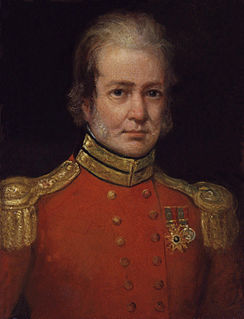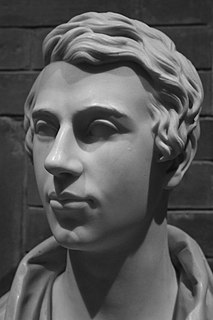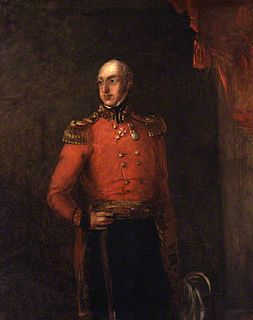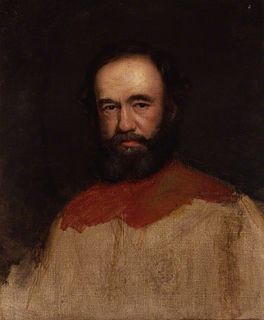 W
WMajor-General Sir Frederick Abbott was a British army officer and engineer of the East India Company.
 W
WJames Atkinson was a surgeon, artist and Persian scholar - "a Renaissance man among Anglo-Indians"
 W
WMajor George Broadfoot CB was a Scottish army officer in the Madras Army of the East India Company.
 W
WWilliam Brydon CB was an assistant surgeon in the British East India Company Army during the First Anglo-Afghan War, famous for reportedly being the only member of an army of 4,500 men, plus 12,000 accompanying civilians, to reach safety in Jalalabad at the end of the long retreat from Kabul.
 W
WField Marshal Sir Neville Bowles Chamberlain was a distinguished British military officer in British India. He served in the Bengal Army and saw action in the First Anglo-Afghan War, Gwalior Campaign, Second Anglo-Sikh War, Indian Rebellion and Second Anglo-Afghan War. He later became Commander-in-chief of the Madras Army.
 W
WLieutenant General Sir Willoughby Cotton was a British soldier.
 W
WFrancis Cunningham was an officer in the Madras Army, member of the Mysore Commission as secretary to Mark Cubbon, and a literary editor. He published a three volume revised edition of Gifford's Works of Ben Jonson in 1871. Cunningham road in Bangalore is named after him.
 W
WMajor-General Sir Henry Marion Durand, was a British Indian Army officer and colonial administrator.
 W
WMajor-General William George Keith Elphinstone CB was an officer of the British Army during the 19th century.
 W
WGeneral Sir Richard England, was a British Army officer, born at Detroit, which was then part of Upper Canada. During the Napoleonic Wars he saw active service in Walcheren, Sicily, and at Waterloo, before commanding regiments and divisions in the Crimean War and in India.
 W
WMajor-General Sir Vincent Eyre was an officer in the Indian Army, who saw active service in India and Afghanistan.
 W
WMajor General Sir Henry Havelock KCB was a British general who is particularly associated with India and his recapture of Cawnpore during the Indian Rebellion of 1857.
 W
WBrigadier-General John Jacob CB was an officer of the British East India Company who served in colonial India for the major portion of his career. He is known for the cavalry regiment called 36th Jacob's Horse, and for founding the town of Jacobabad, in modern day Pakistan, where he planned and supervised the transformation of thousands of acres of desert into arable land over the course of twenty years. The scale of progress and prosperity his works brought to the region can be appreciated by comparing those regions' relative prosperity compared to areas which were not under his administrative jurisdiction.
 W
WLieutenant-General Sir George St Patrick Lawrence was an officer in the British Indian Army.
 W
WBrigadier-General Sir Henry Montgomery Lawrence KCB was a British military officer, surveyor, administrator and statesman in British India. He is best known for leading a group of administrators in the Punjab affectionately known as Henry Lawrence's "Young Men", as the founder of the Lawrence Military Asylums and for his death at the Siege of Lucknow during the Indian Rebellion.
 W
WGeneral Sir Edward Lugard was a British Army officer who served as Adjutant-General in India (1857–58) and later as Permanent Under-Secretary of State for War (1861–71) at the War Office.
 W
WBrigadier John Nicholson was a British Victorian era military officer known for his role in British India. Born in Ireland, Nicholson moved to India at a young age and obtained a commission in the East India Company where he spent the majority of his life helping to expand British rule on the Company Raj's periphery in numerous conflicts such as the First Anglo-Afghan War and the First and Second Anglo-Sikh War. Nicholson created a legend for himself as a political officer under Henry Lawrence in the frontier provinces of the British Empire, especially in the Punjab, and he was instrumental in the settlement of the North-West Frontier. Perhaps Nicholson's most defining moment was his crucial role and death while suppressing the Indian Mutiny of 1857 which gained him adoration in Britain and infamy in India for his ruthlessness in crushing the rebellion.
 W
WSir William Nott was a British military leader in British India.
 W
WLieutenant-General Sir James Outram, 1st Baronet, GCB, KCSI was an English general who fought in the Indian Rebellion of 1857.
 W
WSamuel Parkes VC was an English recipient of the Victoria Cross, the highest and most prestigious award for gallantry in the face of the enemy that can be awarded to British and Commonwealth forces. Parkes was awarded his VC for his actions during the Charge of the Light Brigade.
 W
WGeneral Sir Robert Phayre G.C.B. was a General in the Indian Army who served most of his military career in India including in the First Afghan War, the Second Afghan War, the Indian Mutiny and who was Resident at Baroda from 1873 to 1874 during which period the Maharaja Gaikwar, Malhar Rao, precipitated the Baroda Crisis and then attempted to poison Phayre, by putting arsenic and diamond dust in his sherbet.
 W
WField Marshal Sir George Pollock, 1st Baronet was a British Indian Army officer. He first saw action at the Battle of Deeg and at the Siege of Bhurtpore during the Second Anglo-Maratha War before taking part in the Anglo-Nepalese War. He also commanded the British artillery at the Battle of Prome and at Bagan during the First Anglo-Burmese War. Following a disastrous retreat from Kabul in January 1842 during the First Anglo-Afghan War, the retreating forces became stranded at the small British garrison at Jalalabad and Pollock was appointed Commander of the Force sent to relieve the garrison: he advanced through the Khyber Pass and relieved the garrison in April 1842. He then set about an unauthorised but ultimately successful mission to rescue the British hostages who had been left behind in Kabul prior to the retreat. In 1844 the Pollock Medal was created to commemorate Pollock's achievements: this medal was to be awarded to the "best cadet of the season" at the Addiscombe Military Seminary.
 W
WSir Henry Creswicke Rawlinson, 1st Baronet, KLS was a British East India Company army officer, politician and Orientalist, sometimes described as the Father of Assyriology. His son, also Henry, was to become a senior commander in the British Army during World War I.
 W
WGeneral Sir Abraham Roberts was a British East India Company Army general who served nearly 50 years in India.
 W
WMajor-General Sir Robert Henry Sale GCB was a British Army officer who commanded the garrison of Jalalabad during the First Afghan War and was killed in action during the First Anglo-Sikh War.
 W
WJohn Smith was an English recipient of the Victoria Cross, the highest and most prestigious award for gallantry in the face of the enemy that can be awarded to British and Commonwealth forces. Born in Derbyshire in the United Kingdom, Smith enlisted in the army of the East India Company at the age of 23. Posted to India in 1839, Smith served through various campaigns, earning the Victoria Cross in 1857 at the Siege of Delhi. Smith died from dysentery in 1864.
 W
WLieutenant-General Sir Henry William Stisted,, served as the first Lieutenant Governor of Ontario after Confederation, from 1867 to 1868.
 W
WLieutenant-General Sir John Wellesley Thomas, was a distinguished British military officer who served in Afghanistan, Australia, and China. He was the commander of the British military and police forces that quelled the rebellion at the Eureka Stockade in Ballarat, Victoria, in 1854.
 W
WGeneral James Travers was an Irish recipient of the Victoria Cross, the highest and most prestigious award for gallantry in the face of the enemy that can be awarded to British and Commonwealth forces.
 W
WRobert Christopher Tytler was a British soldier, naturalist and photographer. His second wife Harriet C. Tytler is well known for her work in photographing and documenting the monuments of Delhi and for her notes at the time of the 1857 revolt in India. Mt. Harriet in the Andamans is named after her. A species of bird, Tytler's leaf warbler, is named after him.
 W
WGeorge Warren was a British General who was a major figure in the Afghan and Indian wars of the early 19th century.
 W
WGeneral Sir Thomas Willshire, 1st Baronet, was a British Army officer.